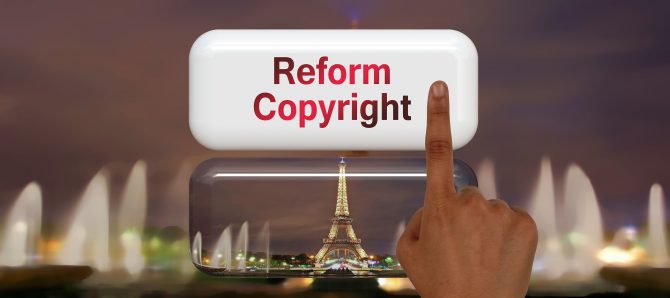European negotiators have reached a political agreement on the new Copyright Directive which includes the controversial article 11 and 13. Article 11 is also known as the link tax and article 13 requires tech giants like Google and Facebook to purchase licenses for the content their users share.

Negotiators from various European countries, the European Parliament and the European Commission came to a joint legislative text on copyright, the European Commission reports in a press release.
The European Commission's Vice-President for the Digital Single Market tweeted about the agreement, “Europeans will finally have modern copyright rules fit for digital age with real benefits for everyone: guaranteed rights for users, fair remuneration for creators, clarity of rules for platforms.”
The new law is controversial, especially article 11 and 13. With article 11, also known as the link tax, blogs that cite text from e.g. news sites will require to purchase a license to use the content, unless only a couple words or a snippet are used. Critics of the article argue that it doesn't define what's short or a snippet. They fear that even text used to make a hyperlink to a news item will require a license. Article 11 also has no exceptions, which means every site that earns money will need to acquire a license.
Article 13 deals with the responsibility for sharing copyrighted material. Social media and websites would become responsible for the content that users upload. Large tech companies are concerned that this leads to an upload filter. They may need to first check users' uploads for copyrighted material to avoid high fines or license fees.
The concluded agreement requires website administrators to do as much as possible to prevent copyright violations. For material that is already online they need to obtain permission, and take offline any content for which they don't have permission.
Opponents of the new legislation fear that the upload filter will also prevent uploads of content produced by users themselves. Ultimately the filter could be used for censorship. Implementing such an upload filter could also be problematic for smaller companies which don't have the resources to develop such a filter.
The revision of the European copyright law isn't complete yet, the member states still have to vote and also the European Parliament must approve the change.
However, it's expected that this will only be a formality.
Agreement reached on #copyright! Europeans will finally have modern copyright rules fit for digital age with real benefits for everyone: guaranteed rights for users, fair remuneration for creators, clarity of rules for platforms. pic.twitter.com/dwQGsAlJvK
— Andrus Ansip (@Ansip_EU) February 13, 2019
















